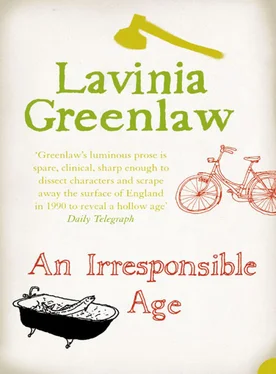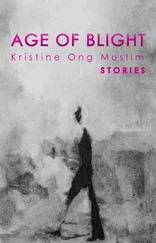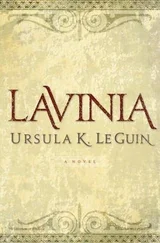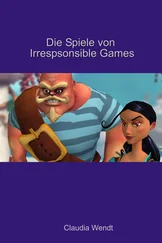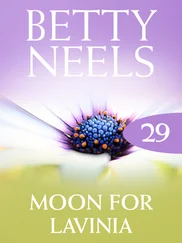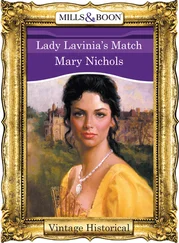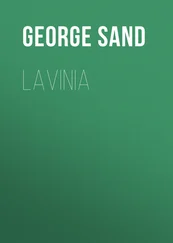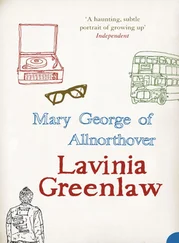Juliet heard a click and a curt laugh. Buck up? She felt appalled on behalf of Bar, or whatever her name was, to whom this man was speaking like a lion-tamer, games teacher and dentist all at once. He must be driving her mad.
For the rest of the afternoon, Juliet typed lightly, opened her filing cabinet smoothly and held sheets of paper by their edges but her computer bleeped and clicked, the printer growled and everything she touched crackled, whispered and whirred. She coughed twice. The first time without thinking and the second time on purpose, just to see what she could provoke. She hadn’t heard him leave but couldn’t hear what he was doing, which meant that after all he probably could not hear her. Juliet relaxed a little.
Tania was at a board meeting and so the gallery was empty. Quiet rolled back from the two locked front doors, whose original designations, ‘Upstream’ and ‘Downstream’, were still visible, carved into the lintels. It rolled through the fresh white space with its stacks of wrapped and sealed exhibits, along the corridor and into her office; it stopped at the wall.
She knew by his tone that this time it wasn’t Bar.
‘Yes, this is Jacob Dart … yes … really? You’d like me to …? Well, gosh, I mean … me? No, I’d be …’ His voice ran on in these bubbling, unfinished phrases with such sincerity that Juliet regretted writing him off as a creep. She thought now that he was a boy, nervous and strange and perhaps not in charge of himself.
Juliet chose this moment to leave. She dropped the padlock and chain on the cobbles, but he did not react to the clatter. Jacob Dart. It had been like listening to three different men and she was annoyed to find that she was three times as interested.
She cycled along the embankment path to London Bridge, where she dragged her bike up the steps and rode north on the crowded pavement, tilting and jinking, braking and back-pedalling. With her mind elsewhere, she could size up the slightest gap and guess where a foot would fall. She might lean a little too far over and brush the sleeve of a man in a heavy coat who would jerk and swing out his arm, his briefcase almost catching in her rear wheel. She would hear him grunt and then mutter something that might be ‘How’ or ‘Cow’, perhaps even ‘Wow’, as he realised that she had swooped past him and that he had had no idea she was there. What if he had moved this way or that? He might want to shout after her, but she was long gone.
Juliet Clough was twenty-eight. She looked like an Italian boy and sounded like an English girl. She had grown up in a village where she refused to make friends and had passed through her childhood landscape as she passed through the city now, removed from the drama but affected by the backdrop. She was young and immune and fond of her family, none of which encouraged her to find out more about what was going on around her.
In any case Juliet conserved herself because there was a slight hitch in her body, which had so far manifested itself in the stiffening of her lower back and a tendency in conversation to run out of steam. You may notice that she does not reach as freely as she might and that her gestures are economical, but you might also assume, as did her three brothers, her sister, her parents and friends, that this was characteristic.
There were more straightforward routes home. At Blackfriars Bridge, Juliet rode back to the south side where the beginning of an official river walk was broad enough for her to skim past the clumps of tourists taking photographs of a skyline flushed with a polluted sunset. When she had begun to travel to work this way, she made detours or waited for the tourists to take their shot, but there were so many of them that now she just rode through. She supposed that sometimes she must have got caught in the frame and would appear as a blur like that of a finger in front of the lens, spoiling the view – a notion that pleased her.
As far as Lambeth Bridge there were white walls, swagged chains and cast-iron railings. Then the path gave way to four lanes of traffic edged by an intermittent yellow line which was supposed to designate a cycle path. Half a mile ahead, this line ended as the road crossed from a borough which supported cycle paths into one that did not. Here, Juliet concentrated on being predictable. The last stretch took her through the backroads around Battersea Park, past the mythical white chimneys of the condemned power station and the overloaded mansion blocks, and on across an estate where Juliet had worked out a route along water-logged walkways, ending with a bump down a stinking spiral staircase and out onto a road of sorts lined with corrugated-iron fencing behind which was wasteland.
This had once been a grid of terraced streets named after military victories. Some had been bombed and the rest, except for two rows of six houses, had been knocked down. Over the last ten years, the tower blocks of the estate had been supplemented first by maisonettes offering a sliver of balcony or garden, and then by what were almost terraced houses again, except that they looked like broken-off chunks of the flats. One row of the old houses belonged to the railway and had been leased to the housing co-op Juliet belonged to. She lived at the end of the road, on what used to be a corner, between the newest houses and the wasteland.
On the stairs, she met her brother Fred who asked, ‘Going to change out of your uniform?’
‘I have to look smart. It’s a gallery.’ Juliet wore either neat shirts and narrow trousers, or t-shirts and jeans, and had the kind of light, straight figure which inclined her to look disciplined or childlike accordingly. She considered Fred, whom she could not imagine in a pair of jeans: ‘Did you sleep in your shirt and tie?’
He nodded. ‘And my waistcoat.’
‘You used to do that when you were at school.’
‘Sleep in my uniform? It saved time.’
‘What for? You didn’t do anything then except sleep or work. Same now, really.’
Fred had a job in the City, something so new to his family that nobody understood what he did or asked him to explain. He dressed with elaborate formality so as to convince himself that he was in costume. To him, making money was a game; he enjoyed the rules but did not show much interest in the result. He understood money well enough to know that when it accumulated it insisted upon change, something Fred was not good at and resisted. He never spoke about how much he lost or made, just as he did not acknowledge that the house in Khyber Road was quite different to the flats his colleagues were buying near the common and the park.
Fred followed Juliet into her room where she turned on a small heater and began to select clothes from the neat stacks of black, white and grey on her metal shelves.
‘Shut the door if you’re staying,’ she said. ‘It’s freezing.’
Fred had been a child who acted the part of a grown-up. Now he was a grown-up acting the part of a grown-up. He was the same height as Juliet, but did not have her coherence. With his red-and-white looks, fizziness and wild hair, he might strike you as badly wired whereas Juliet was wire.
He hopped from side to side. ‘I meant to say, to tell you, to warn you, the thing is –’
‘Could you stop jiggling about while you speak? It’s very annoying.’ Juliet had taken off her trousers and jacket, and was climbing into woolly tights, jeans, a vest, flannel shirt and jersey.
‘The thing is Caroline, a girl from work, tonight.’
‘You invited someone here?’
‘Not as such. Someone’s birthday party. She asked me to be her escort. She’s picking me up at seven.’
‘If you’re her escort, you ought to be picking her up.’
‘Really?’ He flushed and looked so worried that Juliet assured him it didn’t matter, and they went downstairs to light a fire.
Читать дальше
